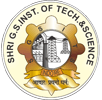List Of Program Outcomes (POs)
|
PO1 |
Engineering knowledge: Apply the knowledge of mathematics, science, engineering fundamentals, and an engineering specialization to the solution of complex engineering problems. |
|
PO2 |
Problem analysis: Identify, formulate, review research literature, and analyze complex engineering problems reaching substantiated conclusions using first principles of mathematics, natural sciences, and engineering sciences. |
|
PO3 |
Design/development of solutions: Design solutions for complex engineering problems and design system components or processes that meet the specified needs with appropriate consideration for the public health and safety, and the cultural, societal, and environmental considerations. |
|
PO4 |
Conduct investigations of complex problems: Use research-based knowledge and research methods including design of experiments, analysis and interpretation of data, and synthesis of the information to provide valid conclusions. |
|
PO5 |
Modern tool usage: Create, select, and apply appropriate techniques, resources, and modern engineering and IT tools including prediction and modeling to complex engineering activities with an understanding of the limitations. |
|
PO6 |
The engineer and society: Apply reasoning informed by the contextual knowledge to assess societal, health, safety, legal and cultural issues and the consequent responsibilities relevant to the professional engineering practice. |
|
PO7 |
Environment and sustainability: Understand the impact of the professional engineering solutions in societal and environmental contexts, and demonstrate the knowledge of, and need for sustainable development. |
|
PO8 |
Ethics: Apply ethical principles and commit to professional ethics and responsibilities and norms of the engineering practice. |
|
PO9 |
Individual and team work: Function effectively as an individual, and as a member or leader in diverse teams, and in multidisciplinary settings. |
|
PO10 |
Communication: Communicate effectively on complex engineering activities with the engineering community and with society at large, such as, being able to comprehend and write effective reports and design documentation, make effective presentations, and give and receive clear instructions. |
|
PO11 |
Project management and finance: Demonstrate knowledge and understanding of the engineering and management principles and apply these to one’s own work, as a member and leader in a team, to manage projects and in multidisciplinary environments. |
|
PO12 |
Life-long learning: Recognize the need for, and have the preparation and ability to engage in independent and life-long learning in the broadest context of technological change. |
Program Education Objectives (PEOs)
|
PEO1 |
To prepare graduates with core knowledge for successful technical careers. |
|
PEO 2 |
To develop future industry professionals with excellent communication skills. |
|
PEO 3 |
To develop professional approach, ethical attitude, communication skills, team work and leadership quality and adapt technological advancements and innovations by engaging in continuous learning. |
|
PEO 4 |
To develop skills to become an entrepreneur for promoting research and development of low cost healthcare technologies. |
|
PEO 5 |
To encourage students for higher studies in technology and management and promote lifelong learning attitude. |
Program Specific Outcomes (PSOs)
| PSO1 |
To grasp concepts of engineering mathematics and apply them in correlated engineering domains to evaluate real world problems in health care. |
| PSO 2 | Ability to understand and interpret concepts of medical electronics required in healthcare sector, and to communicate, analyze, develop the same to provide services to society. |
| PSO 3 | The ability to grasp the research advancements and evolve with innovative ideas to contribute towards cost effective product development for providing access of health care services to masses. |
M.Tech
| PO'S-PEO'S-PSO'S | <View Document> |


